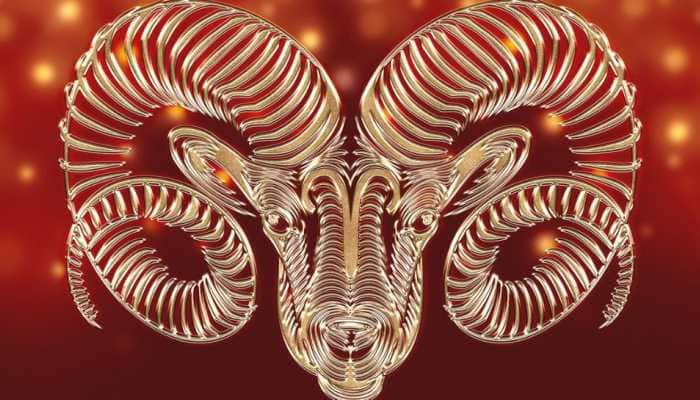Egg Freezing: Know Everything From Procedure, Benefits And Side Effects
Egg freezing allows a woman to postpone pregnancy until a later date when she is ready to have a baby. Here is everything you need to know about the egg freezing process and its safety.
Trending Photos
) Egg Freezing: Know Everything From Procedure, Benefits And Side Effects
Egg Freezing: Know Everything From Procedure, Benefits And Side Effects Egg freezing: There may be changes in both society and childbearing habits. The basic fundamentals of fertility, however, remain constant. The menopause often begins in a woman's late 40s or early 50s. The fertility of a woman decreases in the years leading up to menopause. It is harder for older women to get pregnant than it is for younger ones.
Women who are considering about freezing their eggs should be aware that frozen eggs are less likely than fresh eggs to result in successful pregnancies. However, using frozen eggs might raise the possibility of getting pregnant later on.
We examine the process, expenses, and advantages of egg freezing in this article.
In an interview with Zee English, Dr. Rajendra Shitole, IVF Consultant and Endoscopic Surgeon, DPU Private Super Specialty Hospital shares the all about egg freezing and everything it entails.
What is Egg Freeezing?
Egg freezing, also known as oocyte cryopreservation, is a medical procedure that allows women to preserve their eggs for future use. The process involves extracting a woman's eggs from her ovaries, freezing them, and storing them for an extended period.
The frozen eggs can be thawed, fertilized with sperm in a laboratory through a process called in vitro fertilization (IVF), and then transferred to the woman's uterus to achieve a pregnancy.Egg freezing can be beneficial for several reasons.
It offers women the opportunity to preserve their fertility when they are not ready to have children but want to increase the chances of having a biological child later in life. It is commonly chosen by women who want to delay childbearing due to various personal, medical, or professional reasons, such as pursuing a career, undergoing medical treatments that may affect fertility like cancer treatments, or not having a suitable partner.
Egg Freezing Procedure
The process of egg freezing typically involves the following steps:
Ovarian Stimulation- The woman undergoes hormonal injections to stimulate the ovaries and promote the development of multiple eggs instead of the usual single egg that is released each month.
Egg Retrieval- Once the eggs reach maturity, they are retrieved through a minor surgical procedure called transvaginal ultrasound aspiration. A thin needle is inserted into the ovaries, guided by ultrasound imaging, to collect the eggs.
Freezing- The eggs are then carefully frozen using a technique called vitrification. Vitrification involves rapidly cooling the eggs to extremely low temperatures, which prevents the formation of ice crystals that could damage the eggs.
Storage- The frozen eggs are stored in specialized cryopreservation facilities, usually in liquid nitrogen tanks, to maintain their viability over an extended period.
Thawing and Fertilization- When the woman decides to use her frozen eggs, they are thawed, and the viable ones are fertilized with sperm in a laboratory through IVF. This can involve either conventional IVF, where the sperm is placed in a dish with the eggs, or intracytoplasmic sperm injection (ICSI), where a single sperm is directly injected into each egg.
Embryo Transfer- After fertilization, the resulting embryos are cultured for a few days in the laboratory. Then, one or more embryos are transferred to the woman's uterus, with the hope of achieving a successful pregnancy.
How safe is egg freezing?
Egg freezing is generally considered safe, and the procedure has been successfully performed for several decades. However, it's important to note that like any medical procedure, there a potential risks and considerations associated with egg freezing.
Here are some aspects to be aware of:
Potential side effects
The process of ovarian stimulation, which involves hormonal injections to stimulate egg production, can cause temporary side effects such as bloating, breast tenderness, mood swings, and mild discomfort.
In rare cases, there may be more severe complications such as ovarian hyperstimulation syndrome (OHSS), a condition characterized by enlarged ovaries and fluid accumulation in the abdomen. OHSS is typically managed by close monitoring and support from medical professionals.
Egg retrieval risks
The egg retrieval procedure is performed under anesthesia, and while it is generally considered safe, there are risks associated with any surgical procedure. These risks include bleeding, infection, damage to surrounding tissues or organs, and adverse reactions to anesthesia. However, serious complications from egg retrieval are rare.
Effectiveness
The success of egg freezing depends on various factors, primarily the age of the woman at the time of egg retrieval. Generally, the younger the woman, the higher the chances of success. Older women may have fewer eggs available, and the quality of the eggs may decline, which can affect the success of future pregnancies.
Ethical considerations
There may be ethical concerns surrounding the use of assisted reproductive technologies, including egg freezing. These concerns can vary depending on cultural, religious, and personal beliefs. It's important for individuals to consider their values and consult with a healthcare provider to address any ethical concerns they may have.







)
)
)
)
)
)
)
)
)
)
